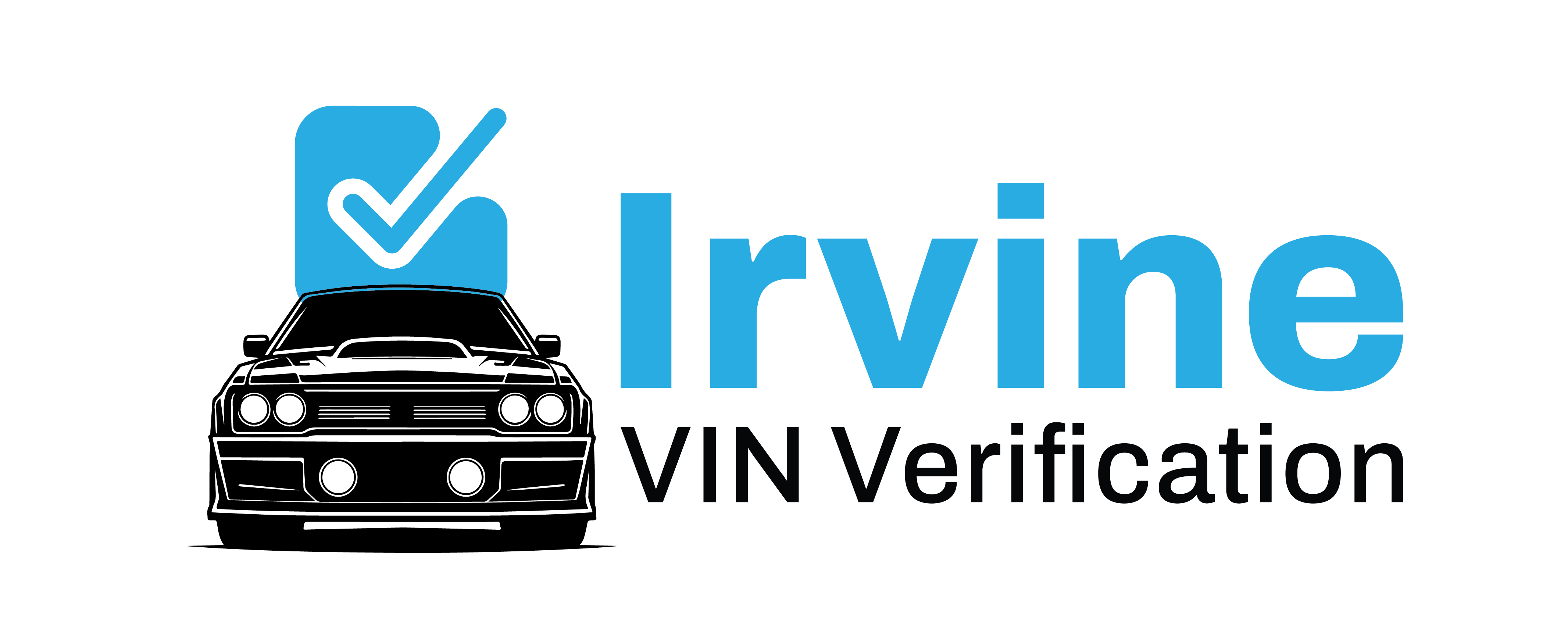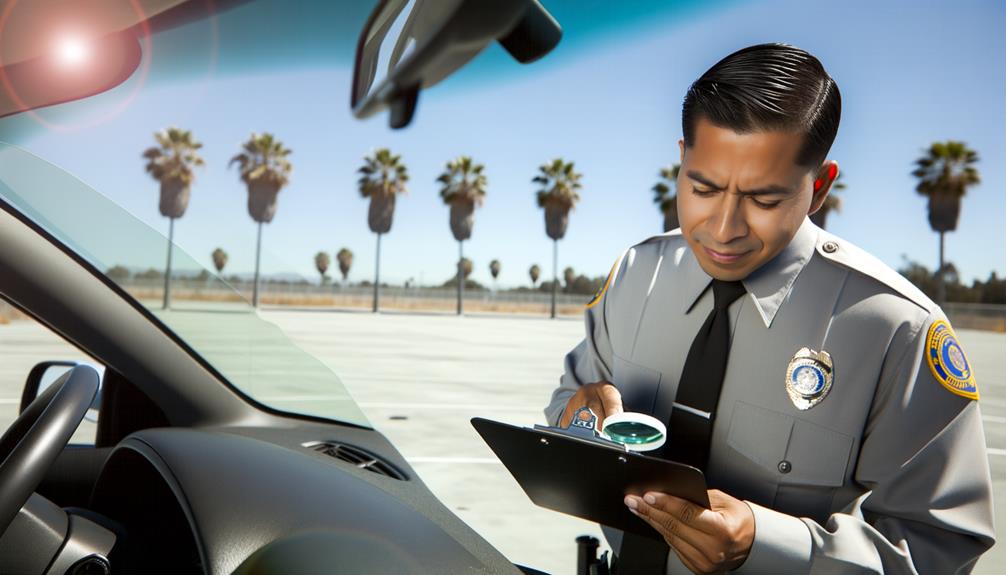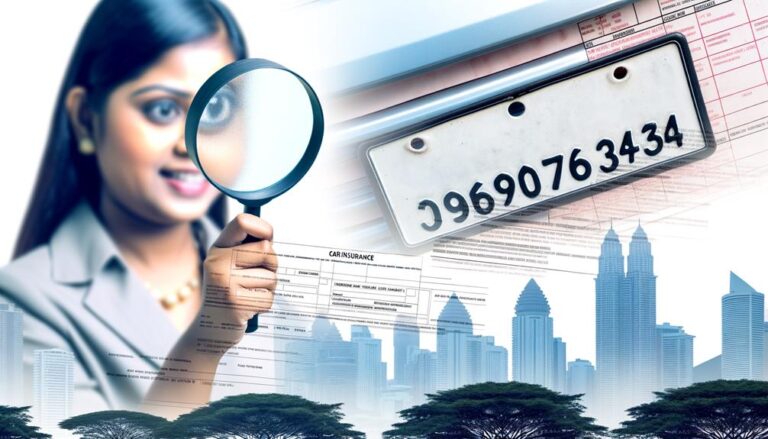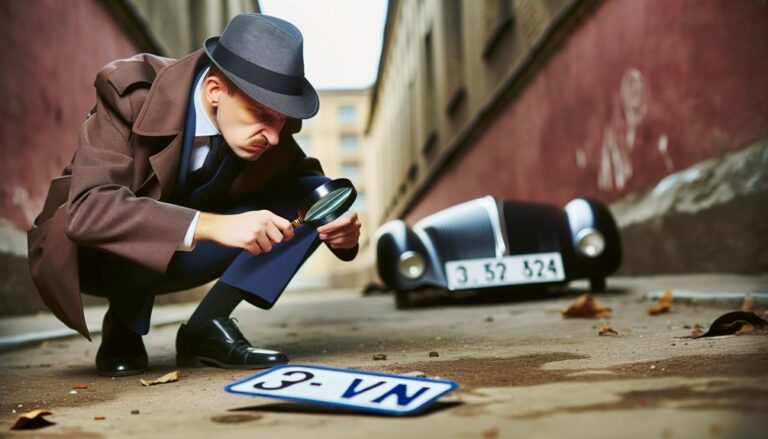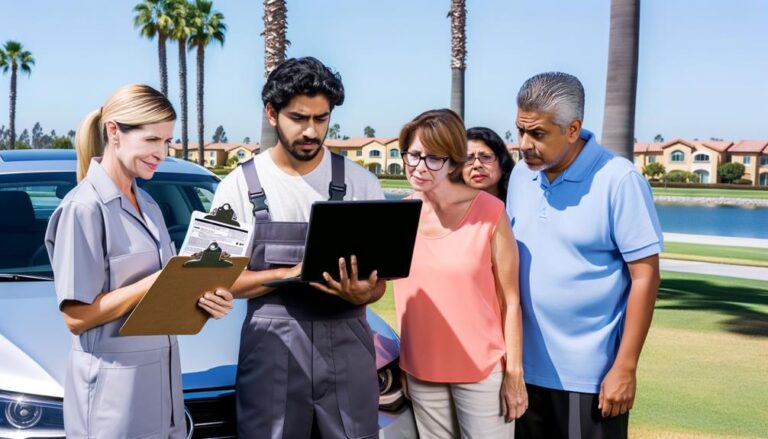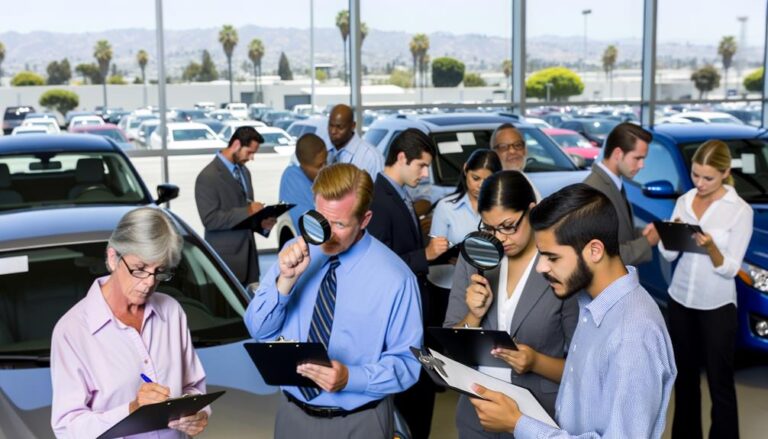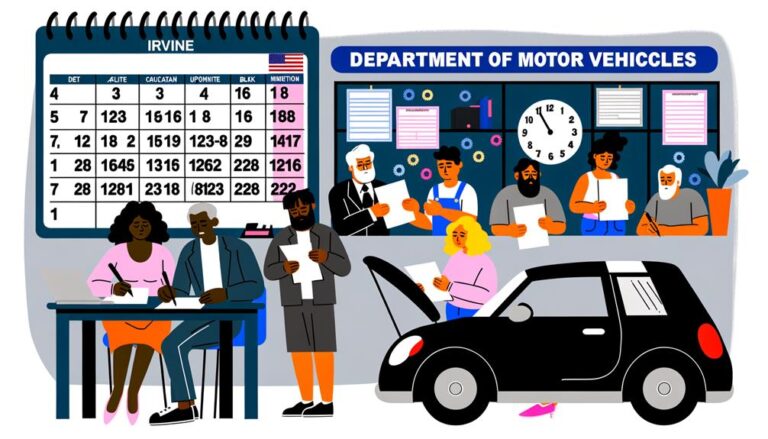In California, you'll need to get your vehicle's VIN verified if it's from out-of-state, salvaged, or considerably modified. This mandatory inspection involves checking the VIN, engine number, weight, and odometer readings to confirm the vehicle's identity and compliance with state regulations. The process is conducted by California Highway Patrol officers, DMV employees, or licensed verifiers who guarantee everything aligns with DMV records. You'll complete a REG 31 Form during this process, which certifies your vehicle for use on California roads. This step is essential for preventing fraud and theft, making certain your vehicle meets registration and emissions standards. Seeking more details will further clarify how you can comply smoothly with these requirements.
Vehicle Verification Overview
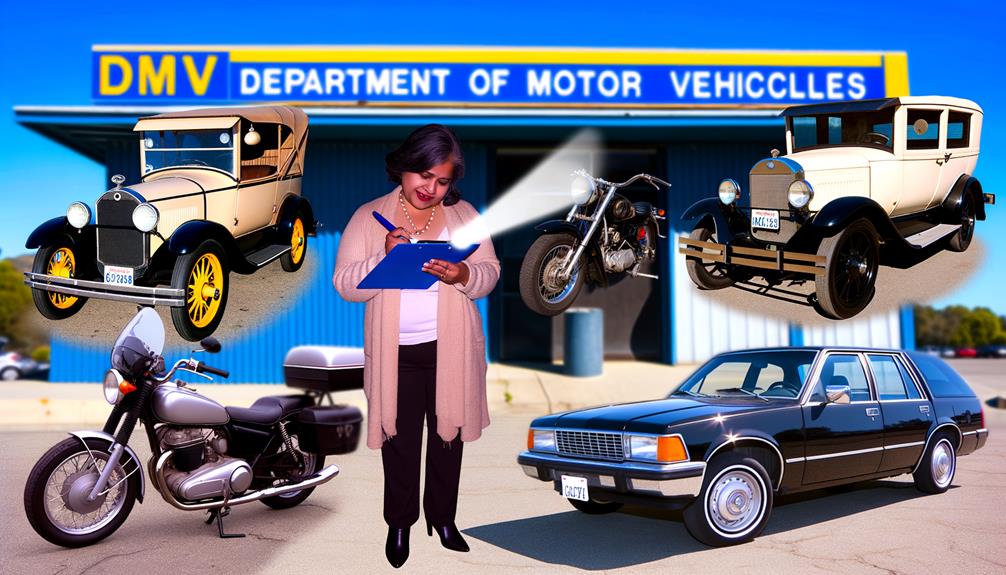
In California, VIN verification is an essential inspection process that confirms both the identity and ownership of vehicles prior to registration. You mightn't realize it, but this step is critical in safeguarding your freedom to own and operate your vehicle without legal hassles.
Imagine cruising down the Pacific Coast Highway without a care, knowing your vehicle's paperwork is bulletproof against claims of theft or fraud.
This mandatory physical inspection scrutinizes not just the vehicle identification number (VIN) but also the engine number, weight, and odometer reading. It's thorough to guarantee every detail matches up perfectly with the ownership documents you provide.
That's where the California Highway Patrol officers or licensed vehicle verifiers step in. They're not just checking numbers; they're protecting you from potential vehicle fraud.
Significantly, this verification is indispensable for out-of-state vehicles entering California's registration system, guaranteeing that all information aligns with state requirements.
Each vehicle that goes through this process must have a completed REG 31 Form—a document that certifies your vehicle is legit and ready for the roads of California.
It's a straightforward form, but it carries the weight of your vehicle's authenticity, making sure that what you're driving is exactly what you think it is.
Required Verification Instances
You'll need to arrange for VIN verification in several specific cases when registering your vehicle in California.
If you're bringing in an out-of-state vehicle, California wants to guarantee it meets specific registration laws and standards, including emissions. This means a trip for a verification inspection to keep everything above board.
Got a vehicle that's been labeled salvage or junked and lacks a California Highway Patrol (CHP) certificate? You'll need to verify its VIN to get it back on the road legally. It's about confirming that your vehicle in California is up to snuff and making sure your ride isn't going to cause you legal headaches later.
If you've built your vehicle from scratch or made significant modifications, such as engine changes, VIN verification becomes essential. It's not just about bureaucracy; it's about guaranteeing your freedom to drive a vehicle that's truly yours, without future disputes over its identity or ownership.
For those who need extra help, private VIN verification services can expedite the process guaranteeing compliance with California's stringent regulations.
Always use licensed VIN verifiers for this process to guarantee your vehicle's proper registration. This step isn't just a formality; it's your ticket to driving with peace of mind, knowing everything's legit and recognized by the state.
Inspection Process Details
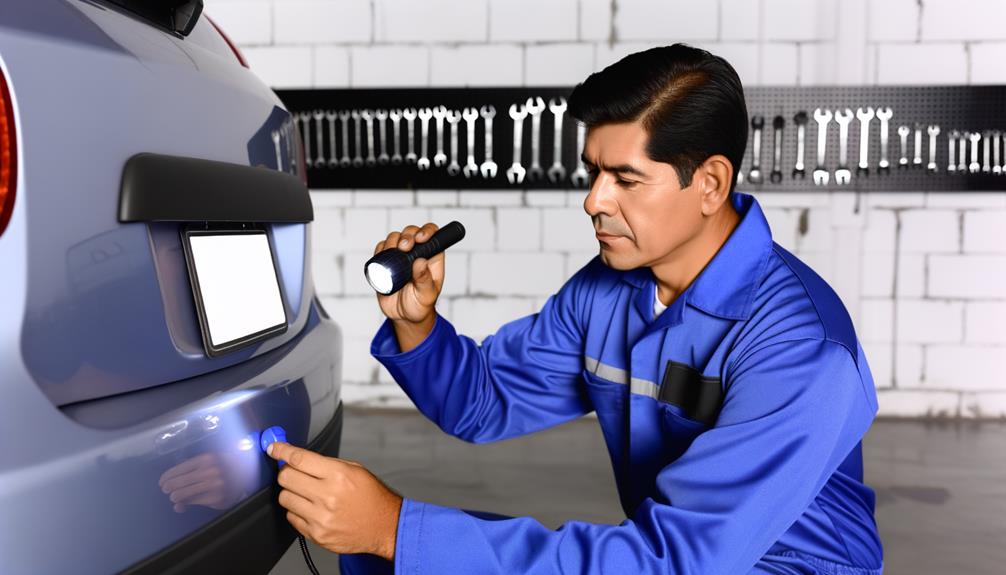
Beginning the VIN verification process in California involves a thorough physical inspection to confirm your vehicle's identification details, including the VIN and engine number. As you navigate this step, it's essential to understand the freedom it brings in ensuring your vehicle's legitimacy and compliance with state regulations.
During the inspection, licensed verifiers meticulously review your vehicle. They check the license plate, record the odometer reading, and verify the vehicle's weight. They'll also scrutinize your ownership documents and inspect the emissions label, ensuring everything aligns with California's standards. This meticulous process is important for maintaining your right to own and operate your vehicle without legal hindrances.
The inspection is carried out by authorized personnel, including specialty trained peace officers, DMV employees, or licensed vehicle verifiers from recognized auto clubs. They complete the California Verification of Vehicle Form (REG 31), documenting every detail to certify the vehicle's compliance.
This form is your ticket to unrestricted vehicle use in California, symbolizing your vehicle's integrity and your freedom on the road.
Authorized Verifiers Criteria
To guarantee a thorough and legitimate VIN verification, only qualified professionals are authorized to conduct these inspections in California. As you seek to confirm your vehicle meets state requirements, it's crucial to understand who these authorized verifiers are. The California Department of Motor Vehicles (DMV), peace officers, and specially licensed vehicle verifiers play key roles in this process.
If you're using a peace officer, remember they're certified under the provisions of California Penal Code § 830, including military police. They've the authority to perform vehicle verification, guaranteeing your freedom to navigate without legal hindrances.
Similarly, employees from auto clubs providing registration services can verify your VIN, as long as they attach their club abbreviation with their signature.
For a more specialized VIN verification service, you might consider contacting a licensed vehicle verifier. These professionals have completed a rigorous application process, which includes submission of forms like OL 19 and securing a surety bond.
The DMV maintains a detailed list of these verifiers, making it easy for you to find someone authorized near you.
Verification Form and Compliance
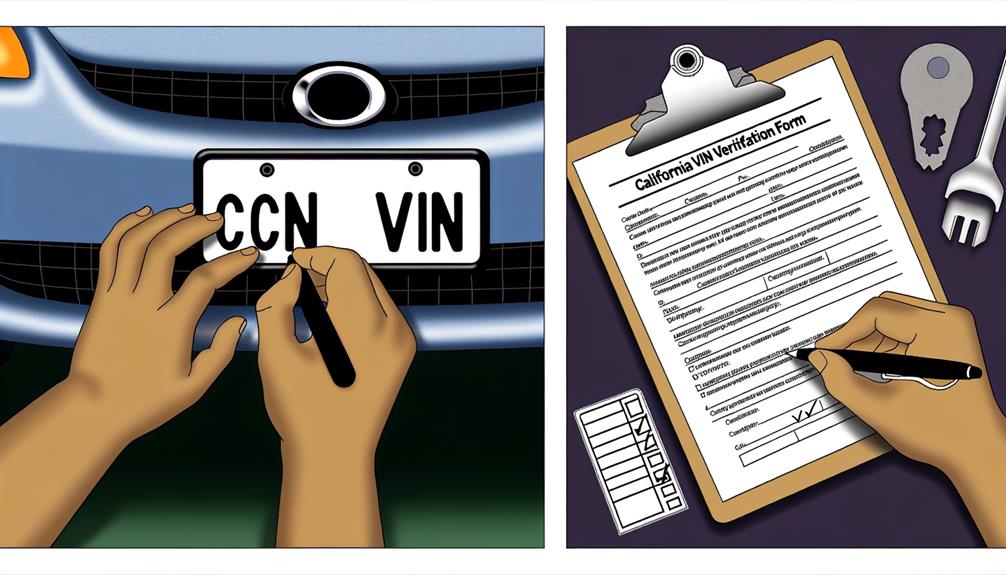
While ensuring your vehicle meets the stringent standards set by California law, it's essential to use the California Verification of Vehicle Form (REG 31) during the inspection. This form is your gateway to simplifying the entire verification process, keeping it straightforward and hassle-free.
Licensed vehicle verifiers, DMV employees, or California Highway Patrol (CHP) officers are the only authorized personnel to handle the REG 31. They're trained to meticulously check the Vehicle Identification Number (VIN) and engine number, ensuring all details align with DMV records.
This thorough inspection process is important for preventing vehicle fraud and theft, safeguarding your freedom to own and operate a verified vehicle.
Frequently Asked Questions
What Do They Check for VIN Verification in California?
They check your VIN against ownership documents and DMV records, inspect engine number, make, model, vehicle weight, and odometer. They also guarantee your license plate matches and verify compliance with emissions standards.
What Is Reg 31 Verification of Vehicle in California?
In California, you'll use the REG 31 form for vehicle verification. It confirms your car's identity by checking VINs, engine numbers, and more, ensuring you're all set to hit the road legally.
Does AAA Do VIN Verification in California?
Yes, AAA does perform VIN verification in California, but it's exclusive to members. You'll need to book an appointment and might pay extra fees. Check their website to locate a convenient branch.
Can CHP Do a VIN Verification?
Yes, you can have the CHP do a VIN verification. They'll check your vehicle's identification details for free. Just make sure to schedule an appointment and bring all required documents to their location.
